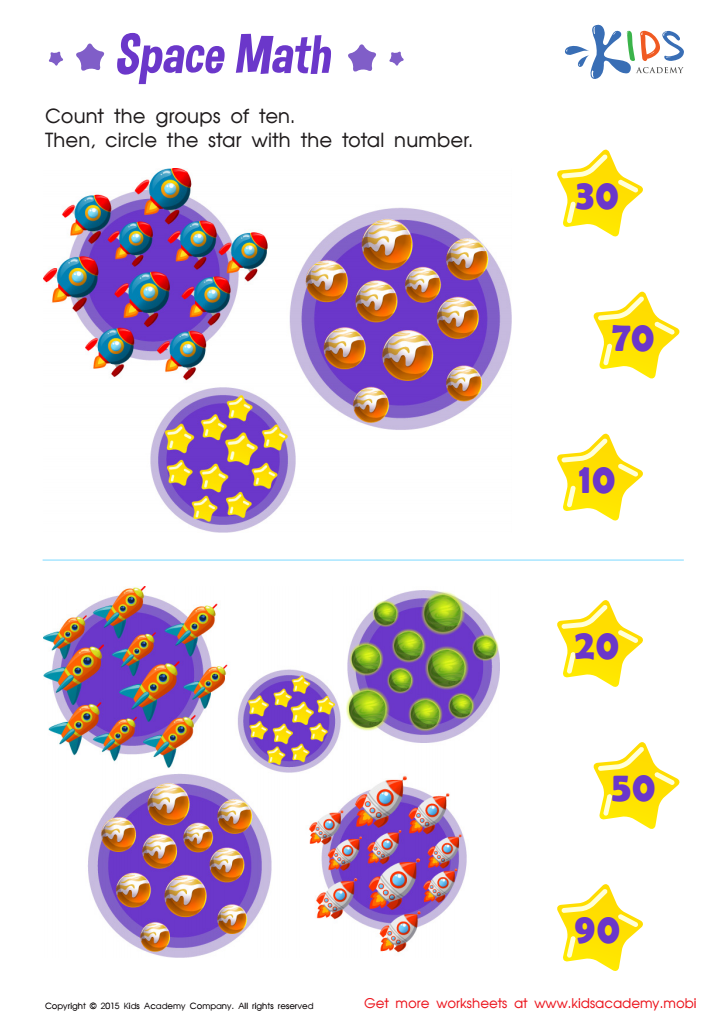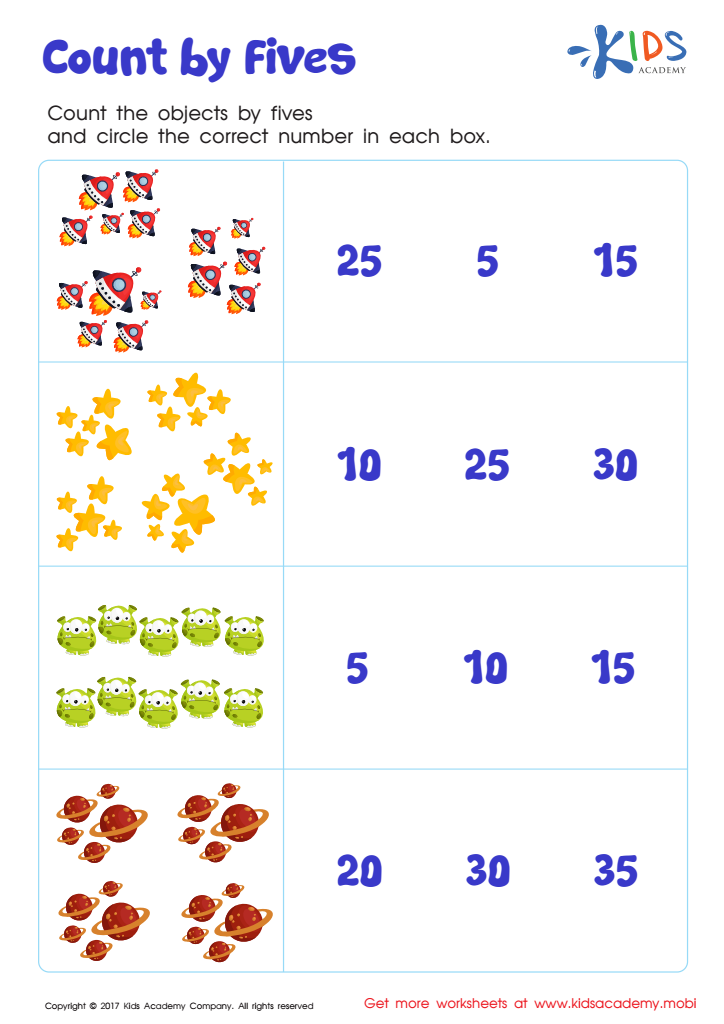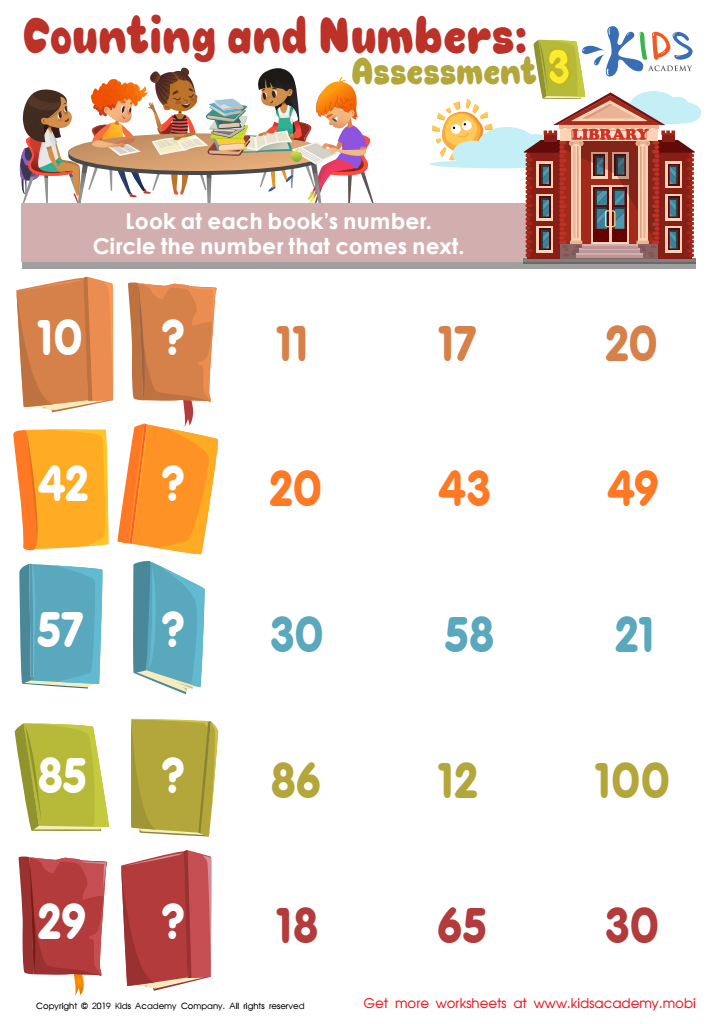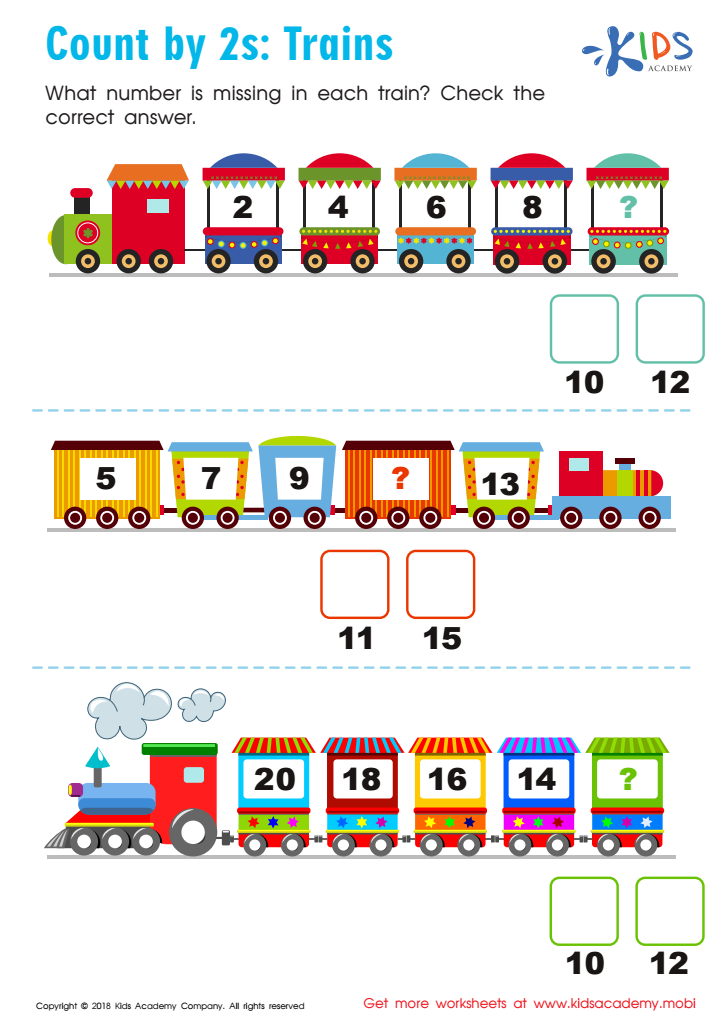Number Sequencing Numbers up to 100 Worksheets for Ages 7-8
4 filtered results
-
From - To
Enhance your child’s mathematical skills with our Number Sequencing Numbers up to 100 Worksheets, designed specifically for ages 7-8. These engaging worksheets from Kids Academy offer a variety of fun activities that progressively challenge young learners to sequence numbers correctly up to 100. Through visually appealing exercises and puzzles, children improve their number recognition, logical thinking, and problem-solving abilities. Ideal for classroom use or homeschooling, these worksheets ensure that your child gains confidence and proficiency in number sequencing while having loads of educational fun. Tailored to suit children's learning styles, our resources guarantee academic growth and development.


Learn dozens: Space math Worksheet


Skip Counting by 5s: Space Math Printable


Counting and Numbers: Assessment Worksheet


Count by 2's: Trains Worksheet
Number sequencing up to 100 is crucial for children aged 7-8 because it lays the foundational understanding of numerical patterns, which is vital for higher mathematics. At this developmental stage, children begin to grasp the concept of order and place value, essential for various math operations like addition, subtraction, multiplication, and division.
When sequencing numbers, children not only memorize a set of numeric values but also understand the relationship between them. This cognitive skill fosters logical thinking and problem-solving abilities. For instance, recognizing that 58 comes after 57 and before 59 helps kids understand continuity and progress, reinforcing their ability to count efficiently, predict patterns, and comprehend more complex math concepts later.
For parents and teachers, emphasizing number sequencing nurtures a child's confidence with numbers. It's an early indicator of numerical fluency, which is directly linked to success in future math lessons. Imagine trying to understand fractions, decimals, or algebra without a firm grasp on basic number order—it's nearly impossible! By mastering number sequences early, children build a resilient foundation for advanced math skills, enhancing their overall academic performance.
Additionally, number sequencing reinforces attention to detail and precision. Encouraging children to become comfortable with numbers up to 100 cultivates patience, fine motor skills, and concentration. Therefore, integrating this fundamental skill in early education is essential for holistic intellectual development.
 Assign to My Students
Assign to My Students





















